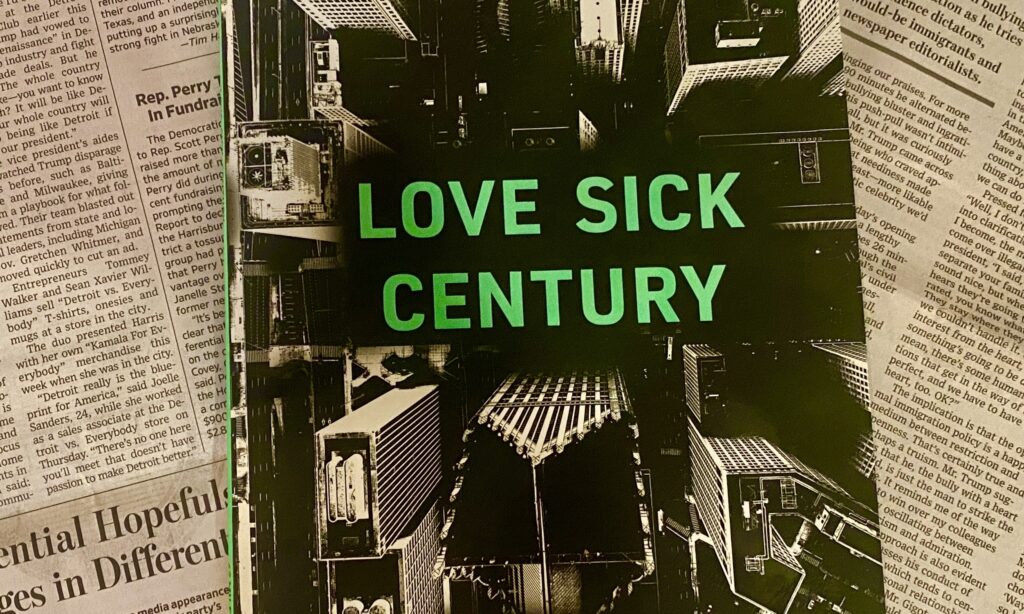“A war started. But/thousands more were already /in bloom so it felt like/going for groceries” begins the poem “Today,” the first lines in Elly Bookman’s stunning debut, Love Sick Century. Darkness infused into everyday duties and desires is a hallmark of these poems, thirty-two in total, many previously printed in The New Yorker, Paris Review, The American Poetry Review, and a host of other publications.
The book is divided into three parts, with the searing and unforgettable poem, “Love Sick,” taking up most of the center section. Bookman taps into a troubling aspect of the American spirit: is our guilt for living in a war-mongering world assuaged by acknowledging that we do so? “Privilege” focuses on the complacency that allows us to prioritize our personhood even in the midst of global upheaval, an attitude we perhaps mischaracterize as resilience. After noting fighter jets flying overhead, Bookman writes: “I’m afraid/I’m finally all right/ knowing good things/in me have died.” With poems like “Another Thing I’d Rather Not Know About Myself” and “Threatless,” she weaves our relationships with one another into the larger fabric of the less loving world. Thus, a couple’s silent war is linked to a real one, and a partner’s sweet protective hold is reminiscent of other, more ominous embraces.
The poet saves some of her most powerful words for the aftermath of relationships. She explores loss in a host of indelible images that float as memories, like the soap bubble in “Clamor”: “how you/didn’t know it was there, and/perhaps/I craved the delicate secret/of the thing suspended/and temporary in the warm/kitchen glow, and wanted it to/stay mine, no matter the cost.”
It is in “Love Sick,”–one brilliant, extended sentence, a propulsive declaration in ten parts, each part its own revelatory gem–that we truly come to understand the collection’s essence. “Love Sick” is a history session and a travelogue, referencing Jeff Buckley and John Berryman, Montana and Toulouse, road tripping straight through the nature of loss: “yes, you/only wanted to be as eventual, definite-like/one of those dead-end streets you loved as/a child-place where pavement ends and the/body stands pathless as if the woods beyond/aren’t also a route, and a disappearing one, as/if blending into a black tree line he’d ask you/to follow…” Time and again, Bookman takes us down a road, literally or figuratively, until we suddenly find ourselves caught up short by revelations.
Like all poetry, this is a book best read aloud, with a cup of tea or a glass of something stronger and a view out your window. With Love Sick Century, in language that is accessible and dazzling, Bookman invites us to take stock of the pain inherent in this precarious world that is dark and hopeful, lawless and loving. Yet the confident prose also brings order to our chaotic minds. After all, art offers a respite from the world not by ignoring the hard parts, but by burnishing them with the beauty of creation. In this collection, you will lose yourself in its pages and find yourself in its wisdom.

